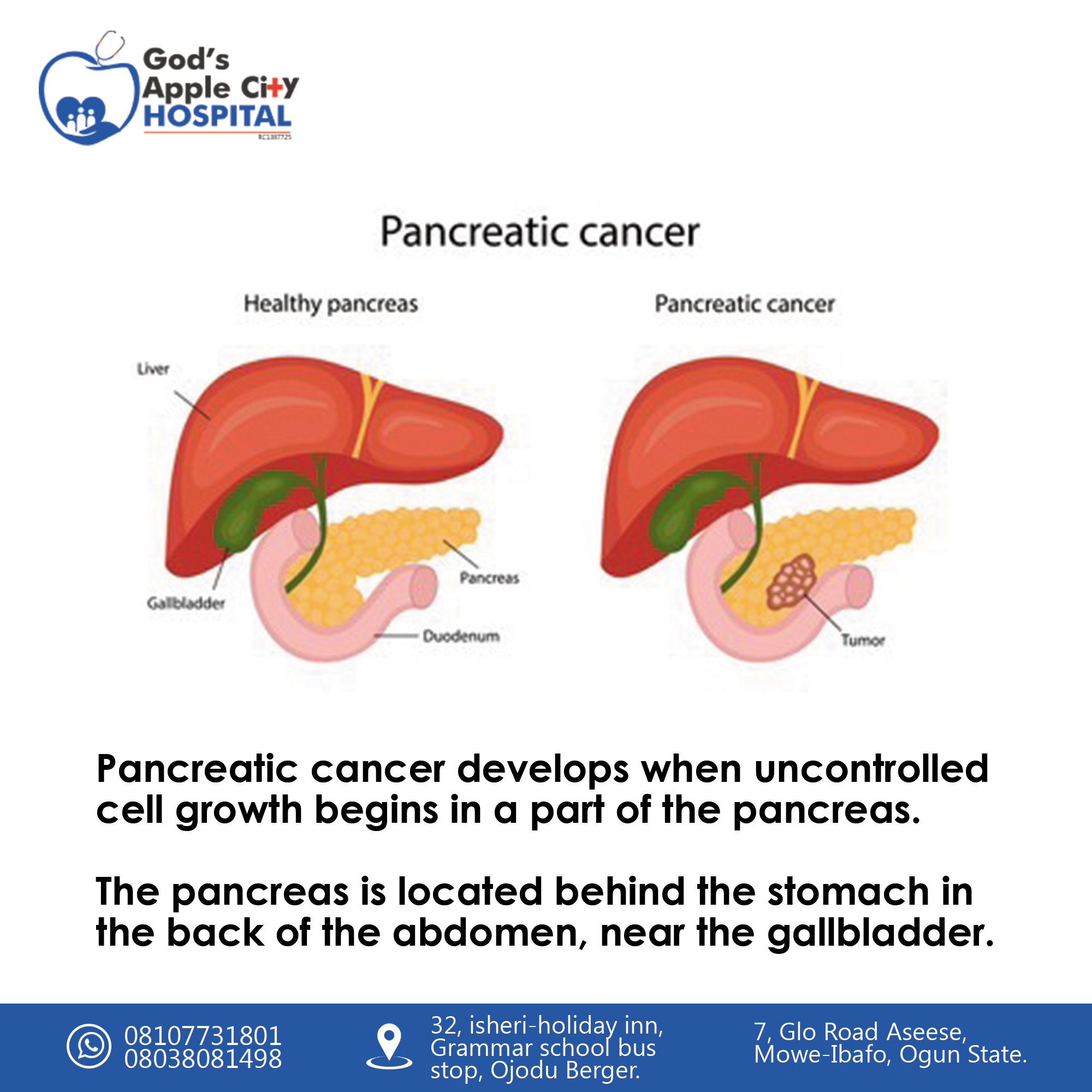Pancreatic cancer
Pancreatic cancer develops when uncontrolled cell growth begins in a part of the pancreas. The pancreas is located behind the stomach in the back of the abdomen, near the gallbladder. It contains glands that create hormones, including insulin, and enzymes.
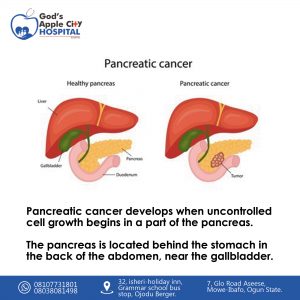
Symptoms
The symptoms of pancreatic cancer often do not appear until the later stages. They can also resemble the symptoms of other conditions, which can make diagnosis more challenging.
Some common symptoms include:
- abdominal or back pain
- jaundice, which is present in around 70% of people with this type of cancer
- low appetite and weight loss
- swelling of the gallbladder or liver
- blood clots, deep vein thrombosis, or pulmonary embolism
- diabetes
- pale gray or fatty stool
- nausea and vomiting
- fever and chills, in some cases
- fatigue
- diarrhea and constipation
- indigestion
- a rash due to jaundice
If the cancer spreads, new symptoms can appear elsewhere in the body.
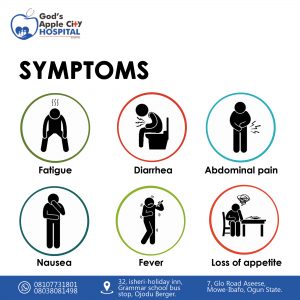
What are the risk factors for pancreatic cancer?
The average lifetime risk of developing pancreatic cancer is about 1 in 64. A risk factor is something that raises the chance that you will get a disease. There are risk factors that are a result of behavior and that can be changed. For pancreatic cancer, these types of risk factors include:
- Smoking cigarettes, cigars and using other forms of tobacco.
- Obesity is also a risk factor. Carrying weight around the waist is a risk factor even if you do not have obesity.
- Having diabetes, especially type 2 diabetes, which is linked to obesity. The new development of diabetes at an older age and in someone with a normal weight or body mass index could be a sign of pancreatic cancer.
- Being exposed to chemicals used by dry cleaners and metal workers.
- Having chronic pancreatitis, a permanent inflammation of the pancreas usually associated with smoking and drinking a lot of alcohol.
There are also risk factors that you can’t change. These include:
- Hereditary chronic pancreatitis due to gene changes (mutations) passed from parent to child.
- Hereditary syndromes with gene changes (mutations) in genes — such as BRCA genes passed from parent to child.
- Being older than 45.
- Being male.
- Being Black.
- Being of Ashkenazi Jewish descent.
Your healthcare provider might suspect pancreatic cancer if you have certain symptoms or if you’ve recently developed diabetes or pancreatitis.
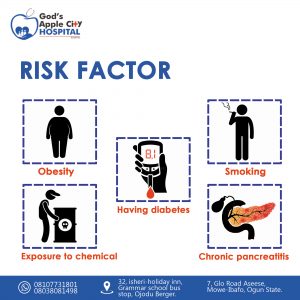
STAGES
- Stage 0: Also known as carcinoma in situ, Stage 0 is characterized by abnormal cells in the lining of the pancreas. The cells could become cancerous and spread to nearby tissue.
- Stage 1: The tumor is in the pancreas.
- Stage 2: The tumor is in the pancreas and has either spread to nearby tissues, organs or lymph nodes.
- Stage 3: The cancer has spread to major blood vessels near the pancreas. It may have also spread to nearby lymph nodes.
- Stage 4: In stage 4 pancreatic cancer, the cancer has spread to distant areas in the body, such as the liver, lungs or abdominal cavity. It has possibly spread to organs, tissues or lymph nodes near the pancreas.
TREATMENTS
Pancreatic cancer treatment depends on certain things, including where the tumor is located, what stage it is in, how healthy you are and whether or not the cancer has spread beyond the pancreas. Treatment options include:
- Surgical removal: The cancerous part of the pancreas (resection) is removed. Lymph nodes near to the pancreas may also be removed. The surgery to remove the pancreas or part of the pancreas is called a pancreatectomy. If your tumor is located in the head (the widest part of pancreas near small intestine) of the pancreas, your provider may recommend the Whipple procedure. This surgical method removes the head of the pancreas, the duodenum (the first portion of the small intestine), the gallbladder, a portion of the bile duct and nearby lymph nodes.
- Radiation therapy: High-speed energy used to kill the cancer cells.
- Chemotherapy: This method uses drugs that kill cancer cells.
- Immunotherapy: Treatment to help your body fight the cancer. Immunotherapy has largely been ineffective against pancreatic cancer, but about 1% of people with pancreatic cancer and a specific genetic change may benefit from it.
- Targeted therapy: Directed at certain genes or proteins that help cancer grow. Genetic testing is generally how we determine if a targeted therapy is right for you.
- Clinical trials: Talk to your healthcare provider about whether participating in a clinical trial might be an option.
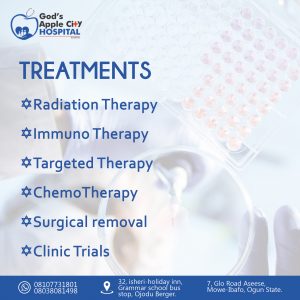
.
.
.
.
.
.
https://web.facebook.com/Godsapplecity
read other blogs https://godsapplecityhospital.com/breast-cancer-signs-and-detection/

